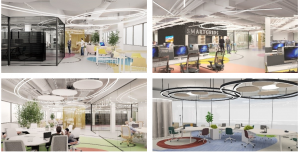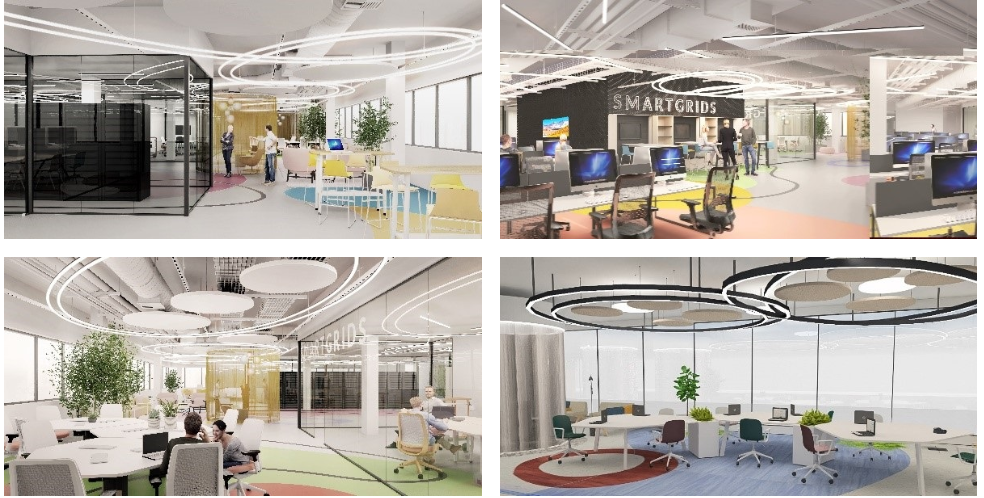Global Smart Grids Innovation Hub, open innovation to lead the smart grids of the future
Iberdrola is progressing the construction of the Global Smart Grids Innovation Hub (GSGIH), its cutting-edge open innovation centre for designing the smart grids of the future.
The company aims to turn this space into a world reference centre for the development of smart grids, which is key to accelerating the energy transition. The group has opted for a sustainable and functional design of spaces and furniture that favours collaboration between multidisciplinary teams, the exchange of ideas and creativity.
The design of the GSGIH opens the door to a new concept of work, with spaces that invite open collaboration between internal and external professionals – manufacturers, technology partners, start-ups and universities. This new way of working helps to speed up innovation processes and improve their results while fostering a culture of collaboration and co-creation.
The space includes different laboratories where it will be possible to create and test prototypes, carry out developments in digitalisation and grid automation, or even emulate the automation system of a complete substation. The GSGIH will also have areas for collaboration and project development, a Design Thinking room equipped with state-of-the-art audiovisual technologies, and an amphitheatre for conferences and presentations.
The materials used in the construction of this network innovation centre meet high sustainability standards, with a high percentage recycled and energy efficient, and with low CO2 emissions generated by transport.
To date, the company has already identified more than 120 projects – some already under development – for a value of 110 million euros, and has reached agreements with 30 technology partners for the development of solutions for grid digitalisation, renewable integration, electric vehicle deployment and energy storage systems.
The innovation projects currently under development are focused on improving the management of smart substation assets, evolving the preventive maintenance systems of the future with robots, digital substation twins or smart transformers, or the development of the second generation of smart meters to respond to new consumption models and reduce grid losses.


